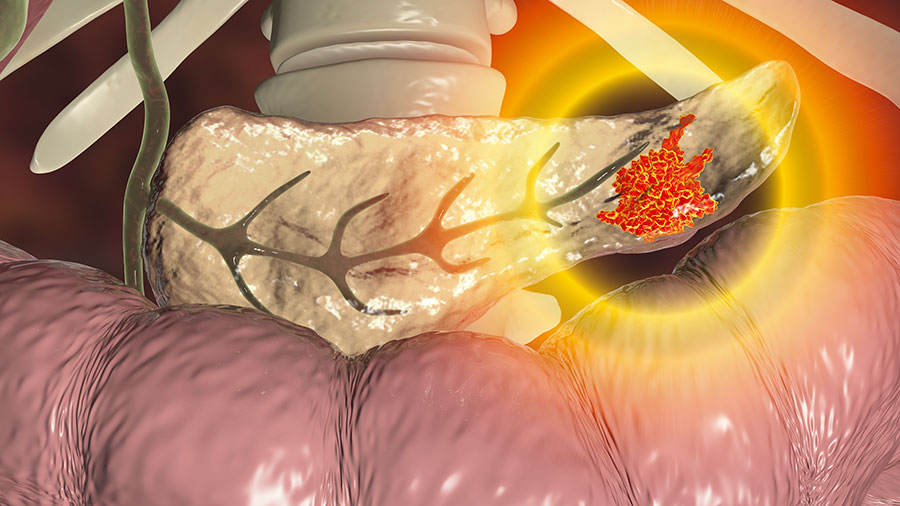By Lynda Williams, medwireNews Reporter
medwireNews: The KRAS G12C inhibitor sotorasib has shown “promising anticancer activity” in a phase 1/2 trial of patients with heavily pretreated, metastatic pancreatic cancer harbouring the target mutation, researchers report in The New England Journal of Medicine.
David Hong (University of Texas MD Anderson Cancer Center, Houston, USA) and co-authors say that their study “provides evidence that targeting KRAS is a viable strategy for the treatment of advanced pancreatic cancer.”
Overall, 38 patients (76% men, median age 65.5 years) with a confirmed KRAS G12C mutation were recruited to the trial. Over half (55%) of the patients had metastases at time of diagnosis, 82% had liver metastases at baseline, 37% had previously undergone resection and 79% had received at least two lines of treatment.
Overall, 42% of the patients experienced one or more treatment-related adverse events (TRAEs) after initiation of sotorasib 960 mg/day, with grade 3 events reported in 16%, most frequently diarrhoea and fatigue.
However, there were no grade 4 or 5 TRAEs, and although 13% of patients required dose reduction or interruption, none discontinued treatment due to TRAEs.
The median duration of treatment was 18 weeks, with 21% of the participants continuing sotorasib for at least 6 months.
At the time of data cutoff, 95% of patients had discontinued therapy, most commonly after disease progression, and 10 patients were subsequently given chemotherapy.
Sotorasib therapy achieved a confirmed objective response in 21% of the patients, all of which were partial and lasted a median of 5.7 months. Treatment was ongoing in two patients for approximately 10 months at the time of data cutoff, Hong et al say.
The median time to progression was 4.0 months and, after a median 16.8 months of follow-up, the median overall survival duration was 6.9 months, with 19.6% of patients alive at the 1-year checkpoint.
The investigators suggest that future research should look at the potential of sotorasib in combination with EGFR or RAS inhibitors following positive findings in patients with KRAS G12C-altered colorectal cancer.
Hong and co-authors add: “[T]he clinical activity of sotorasib against the KRAS p.G12C mutation should invigorate efforts aimed at the design and development of inhibitors related to the forms of KRAS mutations that are more common in pancreatic ductal adenocarcinomas.”
News stories are provided by medwireNews, which is an independent medical news service provided by Springer Healthcare Ltd. © 2023 Springer Healthcare Ltd, part of the Springer Nature Group
N Engl J Med 2022; doi:10.1056/NEJMoa2208470

